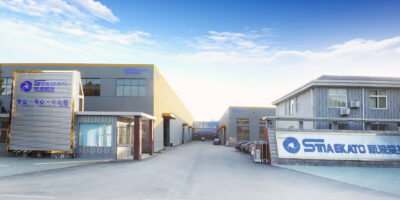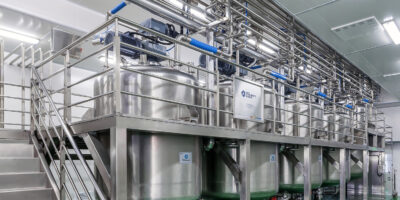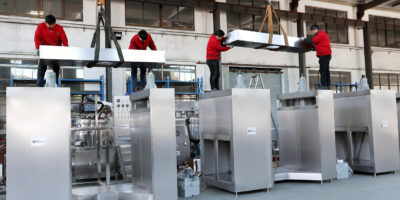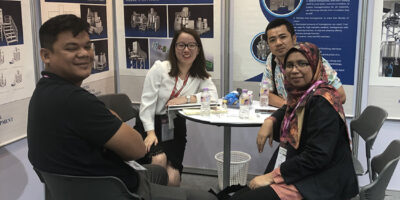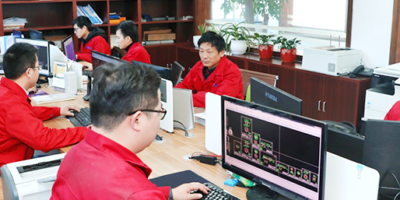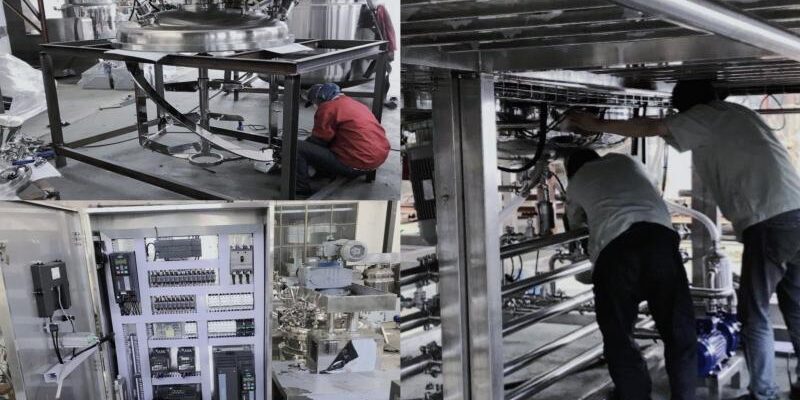Vacuum Homogenizer Emulsifying mixer and liquid washing machine are vital machinery tools used in several industries. They play a critical role in the production process of cosmetics, pharmaceuticals, and food processing. Mechanical manufacturing technology has played a significant part in the development of these machines.
In this article, we will briefly explain how the machine is made.
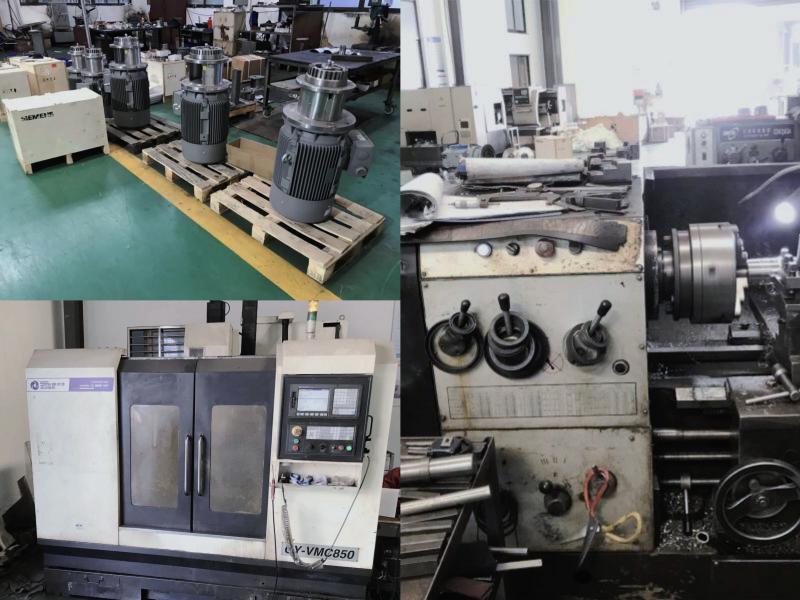 Design: A detailed design plan is created based on customer needs and production requirements. The plan includes information such as the size, specifications, materials, and operating principles of the device.
Design: A detailed design plan is created based on customer needs and production requirements. The plan includes information such as the size, specifications, materials, and operating principles of the device.
Sheet metal processing: Steel plates are processed into the required components using techniques such as riveting, welding, and cutting. These components include the body, jacket, inlet and outlet ports, etc
Mechanical processing: Sheet metal parts and components are machined and assembled, including processes such as welding, drilling, milling, and turning.
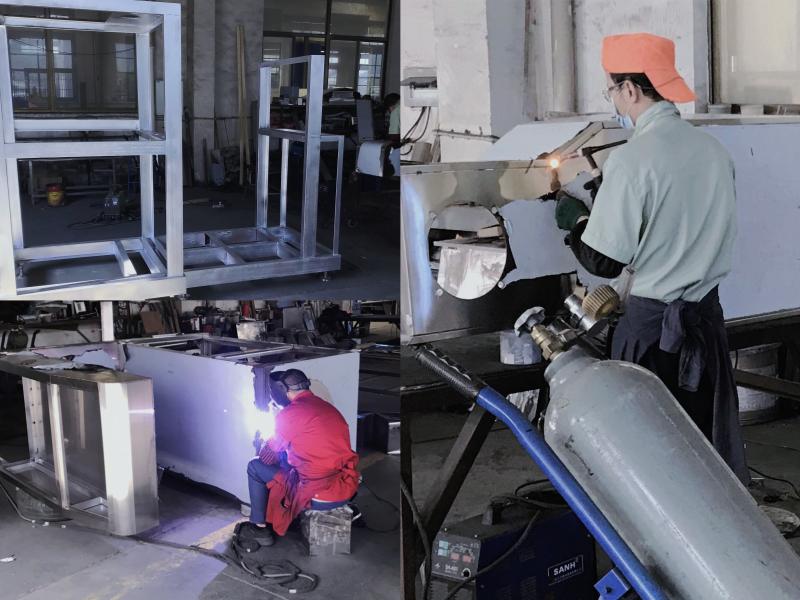
The grinding process of the emulsifying machine is a very important link, mainly for polishing and shaping the surface of the equipment. The following is the grinding process of emulsifying machine manufacturing: 1. Coarse grinding 2. Intermediate grinding: 3. Fine grinding: 4. Polishing: In the process of polishing the emulsifier, 4. After grinding, appropriate cleaning and maintenance measures will be taken to ensure that the surface finish and reflectivity of the emulsifier are maintained. Only by adopting scientific grinding processes and methods can the quality and smoothness of the surface of the emulsifier be optimally guaranteed.
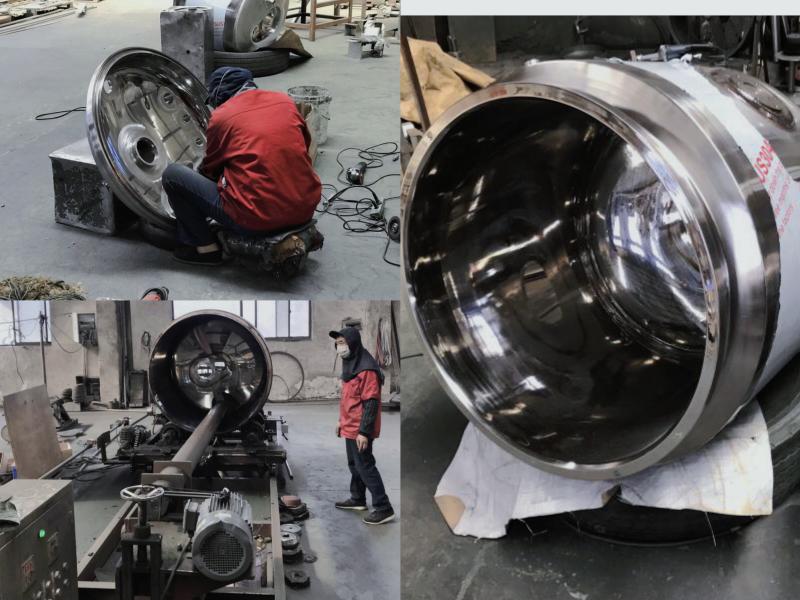
Assembly and commissioning: Various components are assembled, including oil, water, gas and electrical systems, and the equipment is assembled and commissioned.
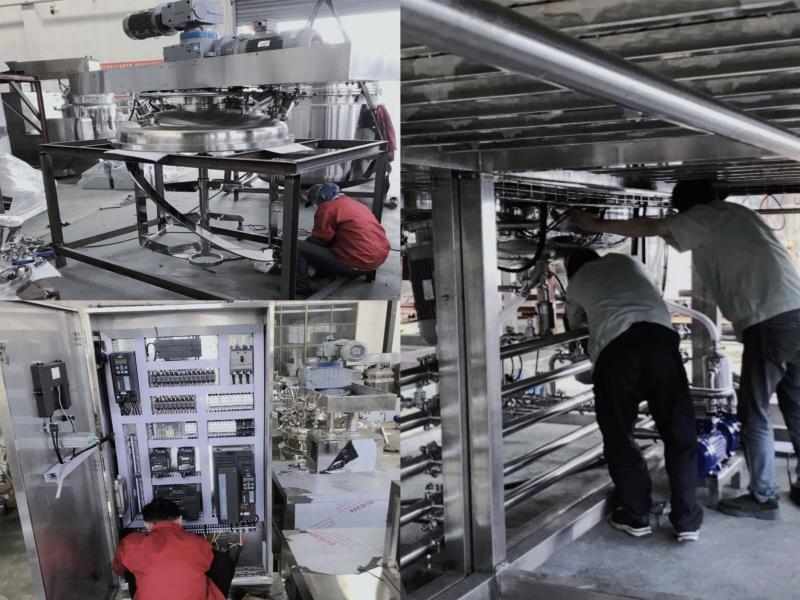 Testing and acceptance: The assembled equipment is tested and accepted against various performance indicators, and related records and reports are created. When manufacturing a vacuum homogenizer emulsifying mixer, factors such as maintainability, ease of operation, production efficiency, energy saving, and environmental protection should be considered to ensure the equipment’s efficiency, stability, and reliability.
Testing and acceptance: The assembled equipment is tested and accepted against various performance indicators, and related records and reports are created. When manufacturing a vacuum homogenizer emulsifying mixer, factors such as maintainability, ease of operation, production efficiency, energy saving, and environmental protection should be considered to ensure the equipment’s efficiency, stability, and reliability.














